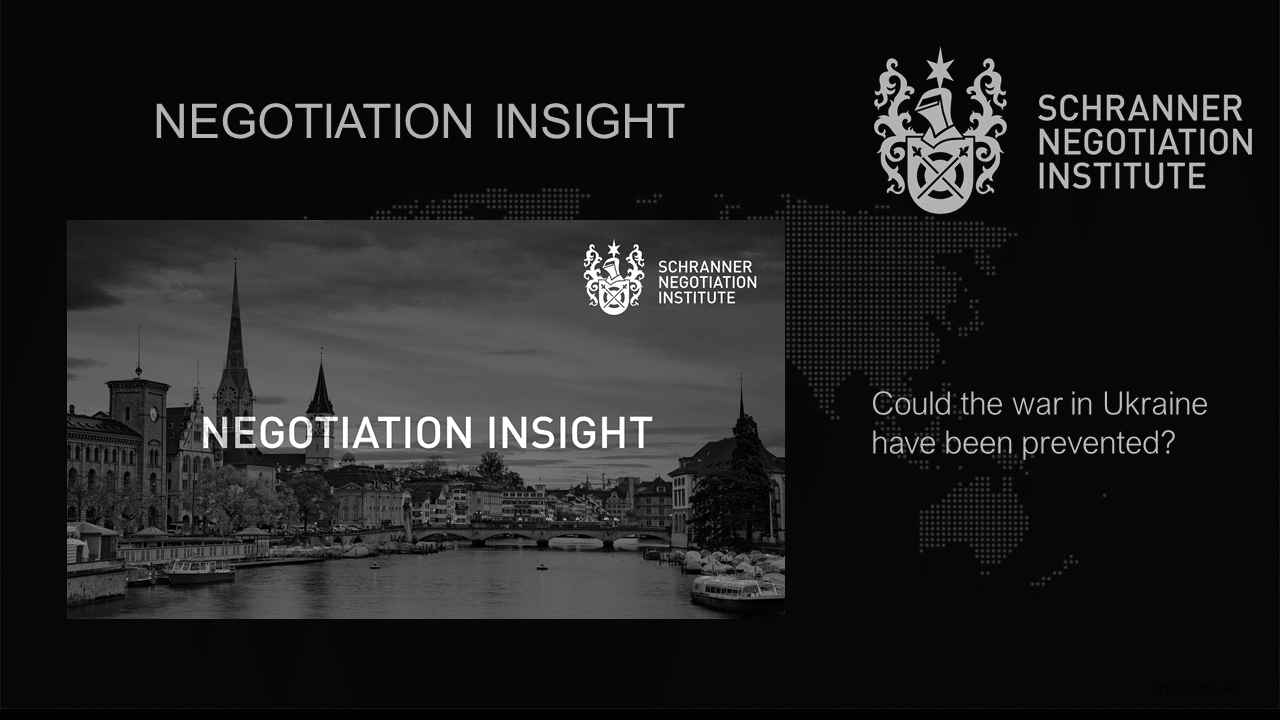Matthias Schranner comments: Could the war have been prevented?
There were so many negotiations before the invasion. Joe Biden, Emmanuel Macron, Ursula von der Leyen, Boris Johnson, Olaf Scholz and many other heads of state tried to find a solution with Mr. Putin.
Mr. Putin had created an excellent negotiating position for himself by deploying the Russian army. The Western negotiators’ fear of war was so powerful that they probably would have agreed to all of Mr. Putin’s demands. However, Mr. Putin rejected an agreement, opted not to negotiate, and instead chose to go to war.
Could the war have been prevented with better negotiating? I believe not.
It is quite simple: at the end of a negotiation there is either an agreement or a non-agreement. If you reach an agreement, you have to pay a price for it. Those who do not reach an agreement also have to pay a price. If the price of a non-agreement is smaller than the price of an agreement, one chooses a non-agreement.
Mr. Putin believes a non-agreement is better for him. He believes he can achieve his goals more easily by going to war.
The mistakes were not made during the negotiations, but in the years before the invasion. Germany’s former defense minister, Ms. Kramp-Karrenbauer, wrote on Twitter: “We have forgotten the lesson of Schmidt and Kohl that negotiation always comes first, but we have to be militarily strong enough to make non-negotiation not an option for the other side.”
The price of non-negotiation and a non-agreement must always be higher than the price of an agreement.
In other words: only if your negotiating partner is afraid of the negative consequences of a non-agreement, he will agree with you.
Once again, we have learned that it is not enough to believe in the good in people. There needs to be deterrence, always.
Follow us on LinkedIn for more insights.
